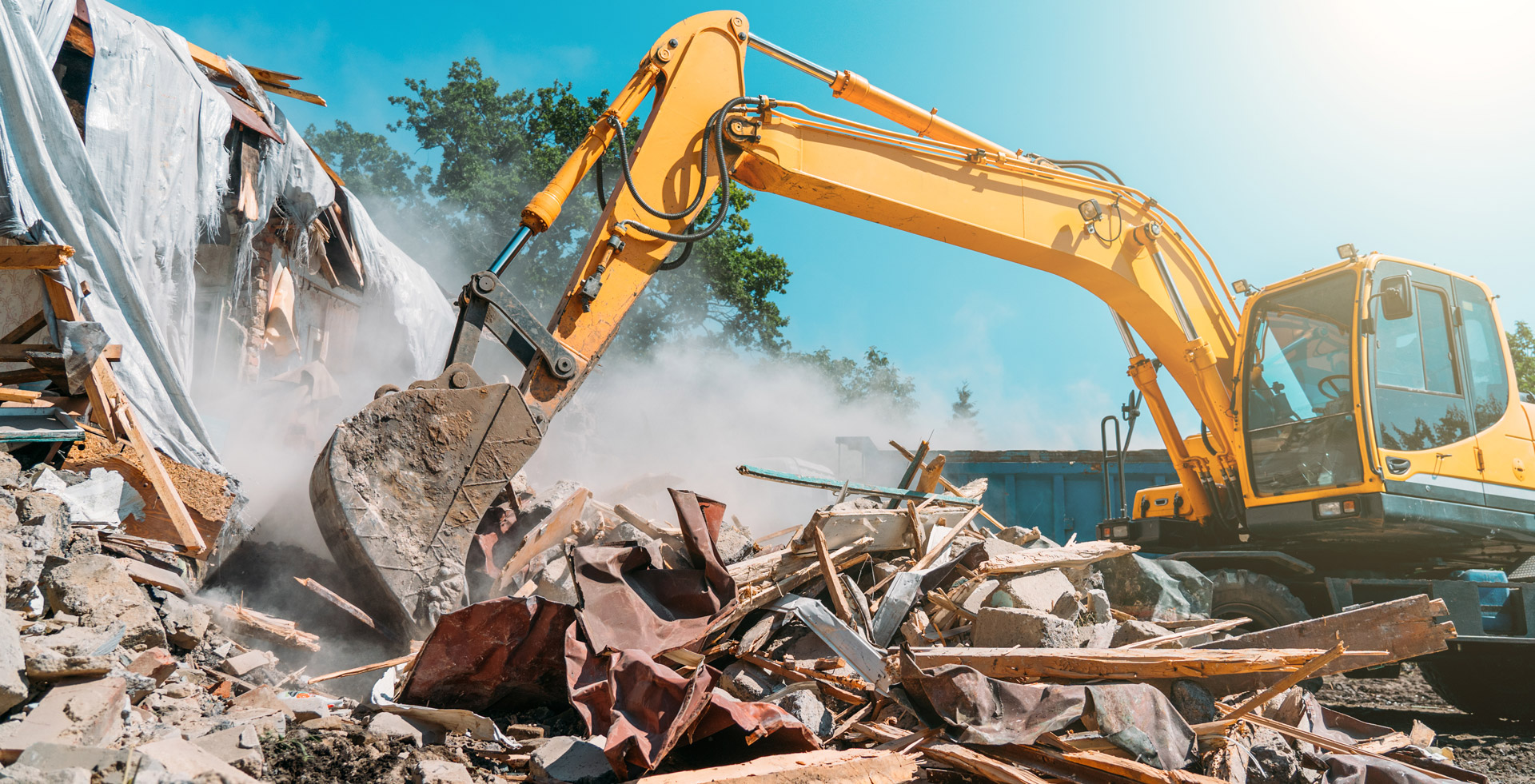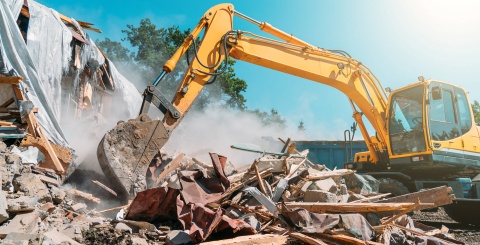 Zero Waste Scotland has been selected as one of four European pilot projects developing a new model for recycling construction materials, with the initiative targeting over €80 million (approximately £67M) in private investment across the continent.
Zero Waste Scotland has been selected as one of four European pilot projects developing a new model for recycling construction materials, with the initiative targeting over €80 million (approximately £67M) in private investment across the continent.
The initiative will create a Circular Construction Hub (CCH) designed to function as a marketplace for second-hand building materials, connecting demolition projects with new construction developments. Scotland joins Munich, Copenhagen and Lisbon as pilot locations for the EU-backed programme.
The project forms part of CirCoFin (Circular Construction Finance), a €6 million initiative funded through the EU’s Horizon Europe programme, which aims to demonstrate that reusing construction materials can become standard practice rather than the exception.
Zero Waste Scotland will spend the next two and a half years developing an investment-ready model for the hub, conducting feasibility studies and engaging with industry stakeholders.
“Developing a workable model for a Circular Construction Hub is an important opportunity for Scotland to lead by example and build on the success of our existing network of smaller community and commercial hubs across the country,” said Iain Gulland, Chief Executive of Zero Waste Scotland.
“It has enormous potential to help us forefront reuse as a convenient and aspirational option for businesses and simultaneously generate promising opportunities for sustainable investment in Scotland.”
The timing aligns with Scotland’s existing policy priorities. Construction waste represents up to half of all waste generated in Scotland, making it a key target. The hub concept also features as a priority action in the Scottish Government’s recently published Circular Economy and Waste Route Map to 2030.
Acting Net Zero Secretary Gillian Martin welcomed the selection, emphasising both environmental and economic benefits: “There are huge opportunities in having an economy which makes reuse and recycling the default choice. We have already seen businesses creating jobs by turning what we might otherwise throw away into valuable new products and services,” she said.
“This Circular Construction Hub pilot helps to progress actions from our 2030 Route Map – by helping to tackle construction waste, which accounts for up to 50 per cent of all waste in Scotland. It will also secure supplies of critical construction materials and help construction businesses save money by keeping construction materials in use for longer.”
The initiative builds on research showing Scotland has significant scope for improvement in circular practices. The country’s first Circularity Gap Report, produced by Zero Waste Scotland with Circle Economy, revealed Scotland’s economy is only 1.3 per cent circular. The analysis found that better resource management in planning and construction could cut Scotland’s material consumption by 11.2 per cent and reduce its carbon footprint by 11.5 per cent.
European construction challenge
The broader CirCoFin project addresses a significant environmental challenge posed by construction, which globally consumes 50 per cent of all raw materials extracted and generates over 30 per cent of total waste, while contributing between 40 per cent and 70 per cent of energy-related CO2 emissions.
CirCoFin estimates that 9.5 billion tonnes of construction and demolition waste worldwide could be reused, with comprehensive circular strategies potentially cutting CO2 emissions from building material production by 38 per cent by 2050.
The hub model being developed combines physical infrastructure with digital platforms. Each CCH will include a Physical Material Bank for storing and processing reclaimed building components, alongside a Digital Marketplace that catalogues available materials and matches suppliers with buyers.
The hubs will offer services including collection and cataloguing of used components, storage and logistics tailored to bulky construction materials, and preparation work such as cleaning and repairing materials for reuse. Private operators are expected to run the hubs, making their financial viability crucial to the project’s long-term success.
CirCoFin’s €6 million budget is designed to leverage much larger private investment. The four pilot hubs are targeting a combined investment volume exceeding €80 million, demonstrating the scale of ambition involved.
The project consortium includes public authorities, private companies and technical specialists. Alongside the four pilot cities, partners include construction technology firm Concular GmbH and the German standards body DIN, which will lead crucial standardisation work.
Creating accepted standards for secondary materials represents a key challenge. The construction industry’s risk-averse culture and strict safety requirements mean non-standardised materials inevitably face barriers to adoption. It is expected that DIN will examine the usefulness of existing relevant standards and look to develop new frameworks where needed.
CirCoFin also aims to produce a “CCH toolbox” containing practical guidance for establishing hubs elsewhere. The goal is to enable replication in at least 30 additional European cities, transforming the pilot projects into templates for wider adoption.
Several factors are creating favourable conditions for circular construction models. Rising prices for virgin raw materials and increasing disposal costs are improving the economic case for using secondary materials. Meanwhile, growing focus on Environmental, Social and Governance (ESG) criteria is pushing companies toward more sustainable practices.
EU regulation is adding further impetus. New taxonomy requirements for construction are creating demand for verifiable sustainability credentials, which CCHs are designed to provide.
The CirCoFin initiative operates within the EU’s Circular Cities and Regions Initiative (CCRI), launched as part of the 2020 Circular Economy Action Plan. This broader framework provides additional support for pilot projects, including connections with potential investors and platforms for sharing best practices.
Scottish implementation details
Scotland’s participation builds on existing circular economy infrastructure managed by Zero Waste Scotland, which already operates a network of smaller community and commercial reuse hubs across the country.
The country currently has a material footprint of 21.7 tonnes per capita, 40 per cent higher than the continental average. Zero Waste Scotland’s Corporate Plan for 2024–2030 targets cutting raw material extraction by one-third by 2030.
The CCH initiative is expected to create new business opportunities and support job creation in repair, reuse and remanufacturing sectors. For individual construction companies, adopting circular models should reduce costs, improve resource efficiency and boost profitability. If the model proves commercially viable, it could unlock funding far beyond the initial EU grant and accelerate adoption across Europe.
